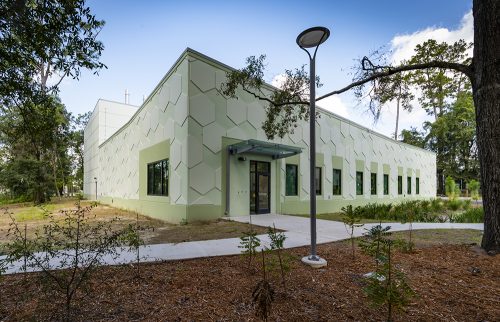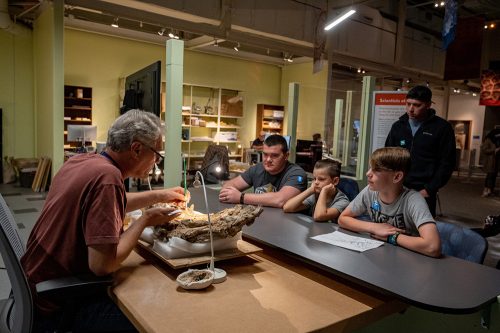GAINESVILLE, Fla. — The Florida Museum of Natural History has again achieved accreditation by the American Alliance of Museums, the highest national recognition afforded to the nation’s museums. Accreditation signifies excellence to the museum community, governments, funders, outside agencies and the museum-going public.
The American Alliance of Museums outlines best practices, shares knowledge and provides advocacy on issues of concern to the entire museum community. Accreditation from the alliance has been developed and sustained by museum professionals since 1971 and serves as the field’s primary vehicle for quality assurance, self-regulation and public accountability.

The Florida Museum has been accredited since 1973. Of the nation’s estimated 33,000 museums, 1,102 are currently accredited, with the Florida Museum being one of 57 accredited in the Sunshine State.
“Only about 3% of museums in the U.S. achieve accreditation, and the Florida Museum is pleased to be recognized within this select group,” said Florida Museum director Douglas S. Jones. “Accreditation attests to our museum’s commitment to excellence as well as the highest professional standards in museum operations and public service.”
Over the past 10 years, the museum has taken big strides to further its vision of inspiring people to care about life on Earth. In a landmark achievement, the museum celebrated its 100th anniversary as the state’s official natural history museum in 2017. That same year saw the opening of the “Discovery Zone,” a permanent exhibit featuring an array of educational science-based activities geared toward young children and their caregivers.

The start of the “Science Up Close” series in 2022 helped further connect scientific research to the community through the inclusion of working labs in museum exhibits. Additionally, the opening of a state-of-the-art special collections building in 2022 for the museum’s “wet” collections, including all specimens preserved in ethyl or isopropyl alcohol, offered the museum 23,000 square feet of new shelving systems, laboratories and office space for the continuation of critical scientific research using the ichthyology, herpetology and invertebrate zoology collections.
“Accredited museums are a community of institutions that have chosen to hold themselves publicly accountable to excellence,” said Laura L. Lott, the alliance’s president and CEO. “Accreditation is clearly a significant achievement, of which both the institutions and the communities they serve can be extremely proud.”
Accreditation is a very rigorous but highly rewarding process that examines all aspects of a museum’s operations. To earn accreditation, a museum must first conduct a year of self-study and then undergo a site visit by a team of peer reviewers. The alliance’s Accreditation Commission, an independent and autonomous body of museum professionals, considers the self-study and visiting committee’s report to determine whether a museum should receive accreditation.
“The Florida Museum is a strong, well-run, and impressive institution across the board,” stated the American Alliance of Museum’s visiting committee in its site visit report. “The Visiting Committee expresses deep admiration for the Florida Museum’s leadership, staff, volunteers, and supporters, and the institution they keep alive and grow year after year.”
-30-
Writer: Aleidys Lopez Romero, PRintern@flmnh.ufl.edu
Source: Douglas S. Jones, dsjones@flmnh.ufl.edu
Media Contact: Kaitlin Gardiner, kgardiner@floridamuseum.ufl.edu